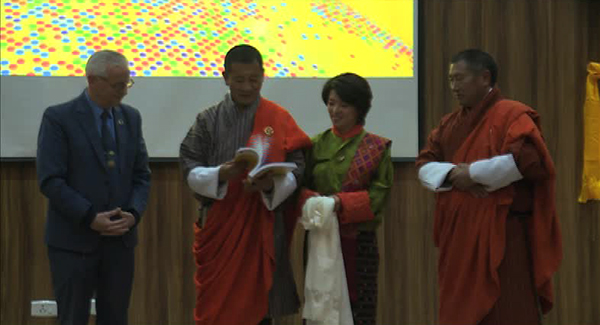 Bhutan is ranked 134 among 189 countries and territories in the latest human development index (HDI) released by the United Nations Development Programme (UNDP) yesterday. Last year as well the country is ranked 134 in 2017 HDI.
Bhutan is ranked 134 among 189 countries and territories in the latest human development index (HDI) released by the United Nations Development Programme (UNDP) yesterday. Last year as well the country is ranked 134 in 2017 HDI.
HDI is a composite index measuring average achievement in three basic dimensions such as health, education and income.
According to 2018 HDI, Bhutan experienced a loss of 27.1 per cent due to inequality in those HDI indicators. The country’s HDI value for 2018 is 0.617. The country, therefore, is classified under the Middle Human Development Category.
As per the report, the life expectancy at birth has increased to 71.5 this year compared to 71.1 in 2017. The expected years of schooling, however, is the same in both the years with 12.1 per cent.
As per the UNDP, the purpose of ranking, however, is to initiate a debate and not a competition.
“Creating a space for dialogue is more meaningful than focusing on the ranking,” said Azusa Kubota, the Resident Representative of UNDP Bhutan.
This year, the new UNDP publication better informs the existing work to reduce inequality by going beyond income, beyond averages and beyond today. Looking at beyond today, the 2019 Human Development Report articulates the rise of a new generation of inequalities.
“Equality often talks about in terms of people and income, how much they are earning in comparison to your neighbour but inequality goes much beyond the income. It can be health, education, dignity or in pursuits of human rights. The world is changing so fast, “Azusa Kubota added.
Going beyond primary services such as health, education and income, she suggested the government should also prevent emerging inequality such as climate change and technological advancement.
Prime Minister Dr Lotay Tshering who attended the event said the Gross National Happiness sets out to solve these emerging inequalities.
“We are given more confidence in doing the role we have been doing now. In Bhutan, we may not be scoring high in this report but we must understand that our basis is very strong. Under the leadership of our kings, we all always have a good place on this. People living in the margins of society are taken care of by the royal kidu programme and the principles of GNH is really beyond income, is really beyond average and I would say is beyond today.”
The launch also saw a panel discussion discussing what is driving inequality in Bhutan and what must be done to narrow the gap.
Globally, Norway, Switzerland and Ireland led the ranking while Niger, Central African Republic, Chad and South Sudan have the lowest scores in the HDI’s measurement of national achievements in health, education and income.
Samten Dolkar












